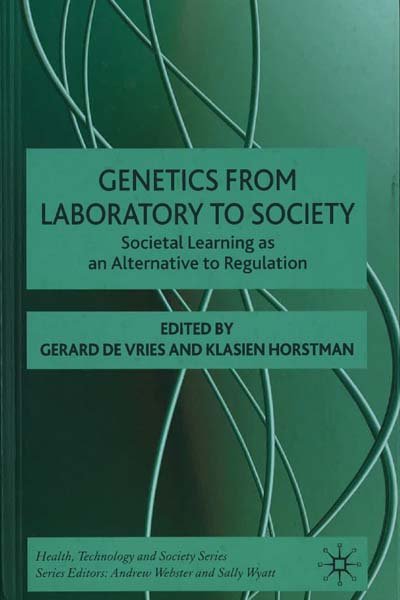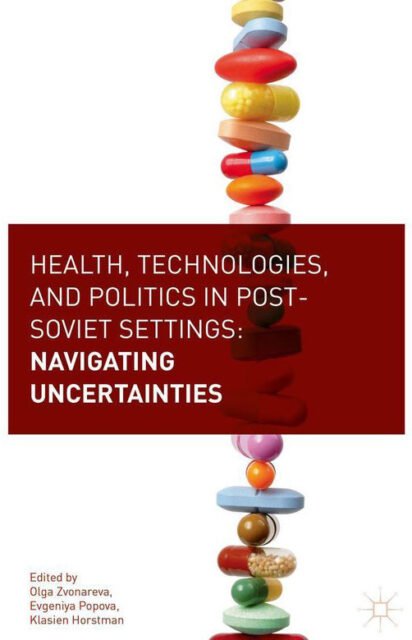Genetics from Laboratory to Society, Societal Learning as Alternative to Regulation
The past decades have seen a rapid development and increasing development of genetic tests. This development will have a major social, political and ethical impact on society.
Genetics from Laboratory to Society details practices of genetic testing and discusses its future role for insurance and the workplace. By tracing the work of medical professionals, but also clients, their family-members, insurance companies, employers, unions and government involved, the book shows how due to the introduction of genetic testing responsibilities are redistributed.
Table of content
- Introduction: The Unknown Practice of Predictive Genetic Tests — G.de Vries
- Constructing Results in Prenatal Diagnosis–How Professionals Anticipate Parental Decisions — M.van Zwieten
- Genetic Diagnosis for Hereditary Breast Cancer – Displaing Uncertainties and Responsibilities — M.Boenink
- Lifestyle, Genes and Cholesterol – A New Arena for Conflict Over Responsibilities and Solidarity — K.Horstman
- Screening for Familiar Hypercholesteromia – An Escape from Family-Fate? — K.Horstman & C.Smand
- Genetics and Insurance. The Effects of Legislation — I.van Hoyweghen
- Work, Health and Genetics – Risks, Rules and Individual Responsibility — R.Benschop & G.de Vries
- Why Not Use Genetic Testing in Occupational Health? – The Limits of the Protection Paradigm at the Work Place — R.Vos
- Conclusion: How To Learn From The Work That Binds Laboratory and Society – -G.de Vries & K.Horstman
- References & Index
In the final chapter, the editors present their ideas as to how society can be helped to learn collectively how to use genetic tests appropriately through the careful evaluation of tests in operation. There is also an interesting discussion of professionalism; in this age of transparency and accountability, the professional is being squeezed in the space between government-imposed controls and the assertiveness of potentially litigious clients.
The book as a whole is then seen to be practicing precisely what it preaches. While not agreeing with every word in the book, it certainly does provide a rich understanding of the social context and complexities of genetic testing, across a range of disorders and including both micro-level, family-specific aspects of genetic testing and the social, third-party areas of insurance and employment.
Angus J. Clarke, European Journal of Human Genetics, 2009, p. 474











